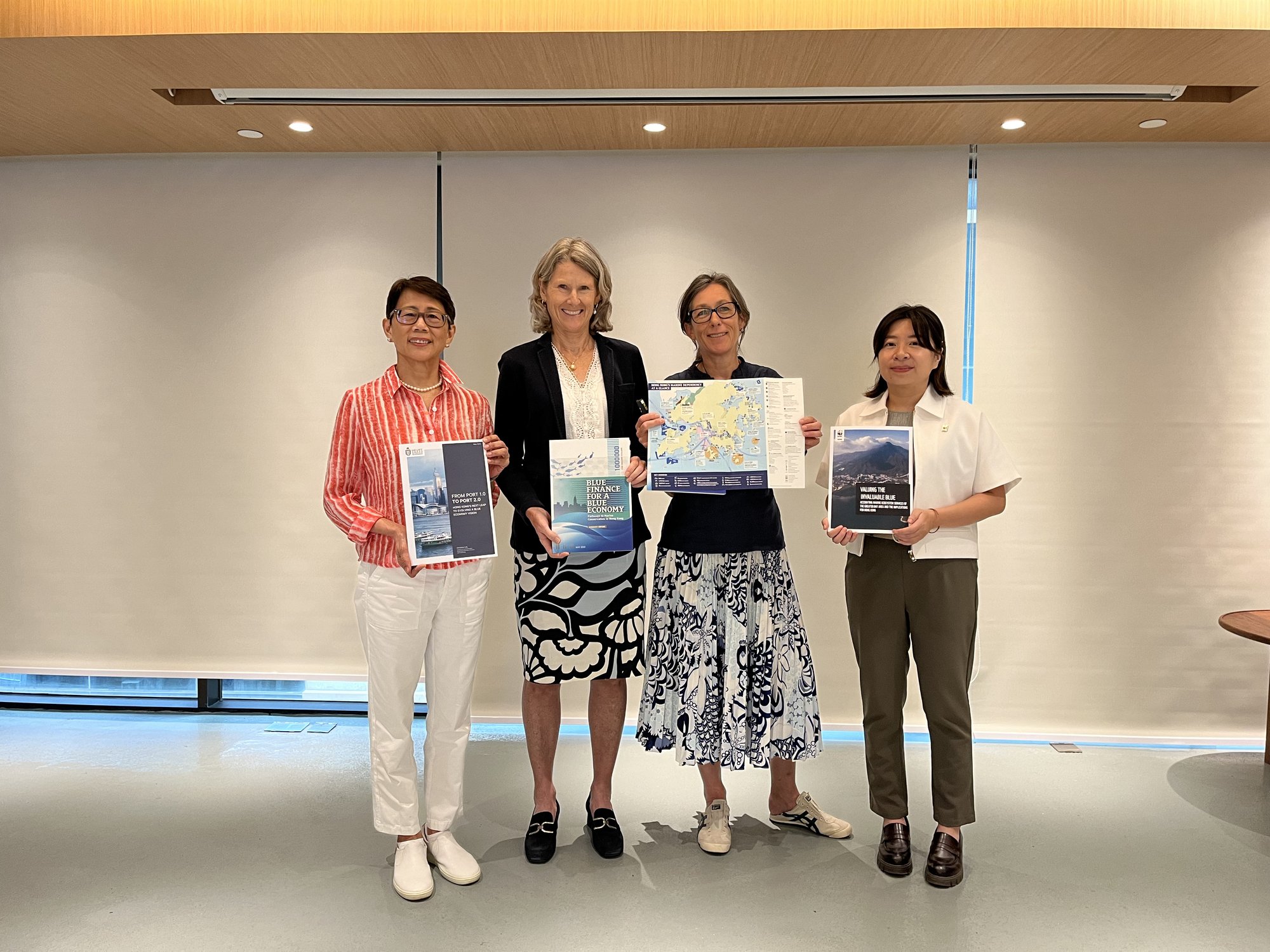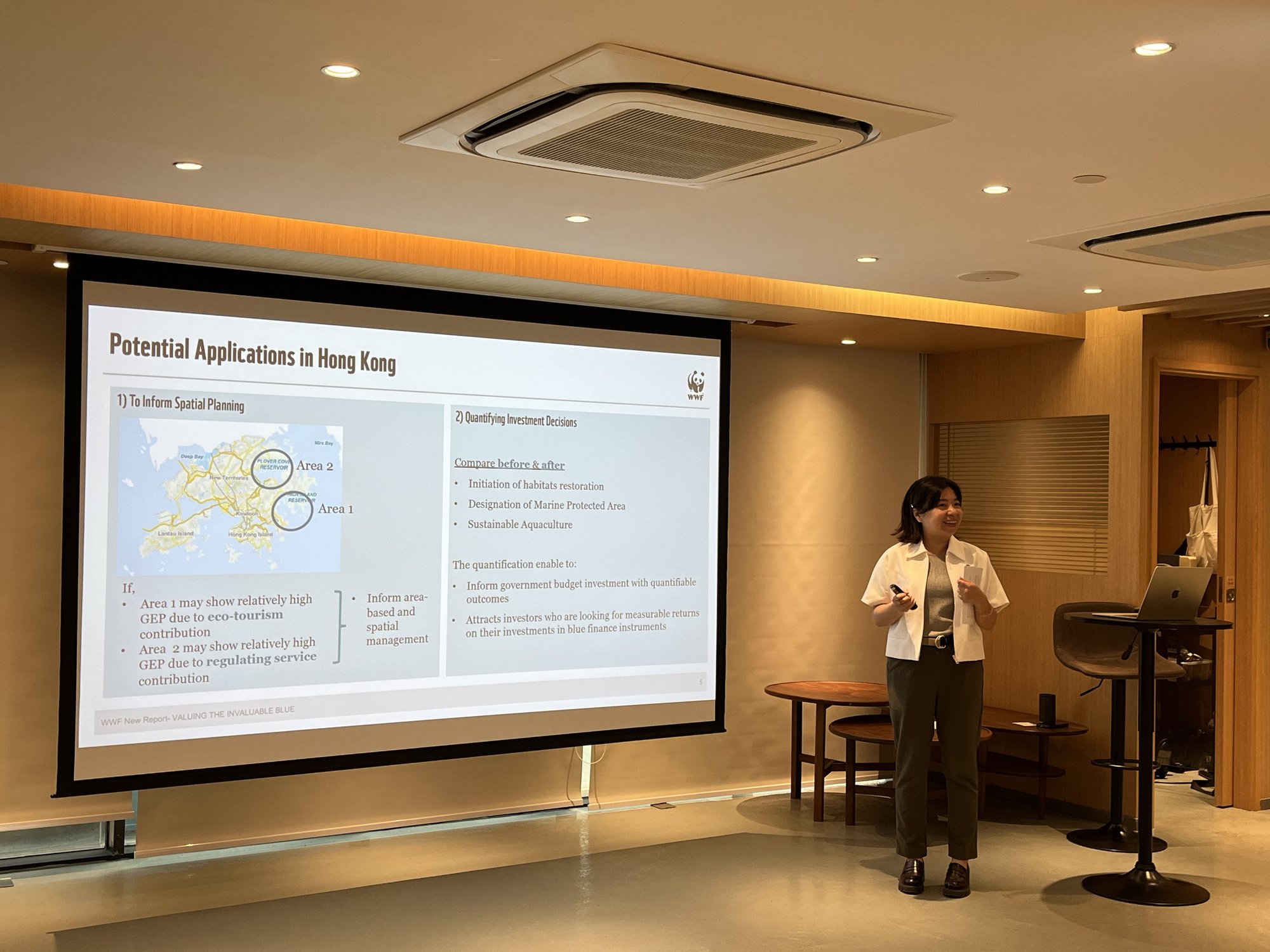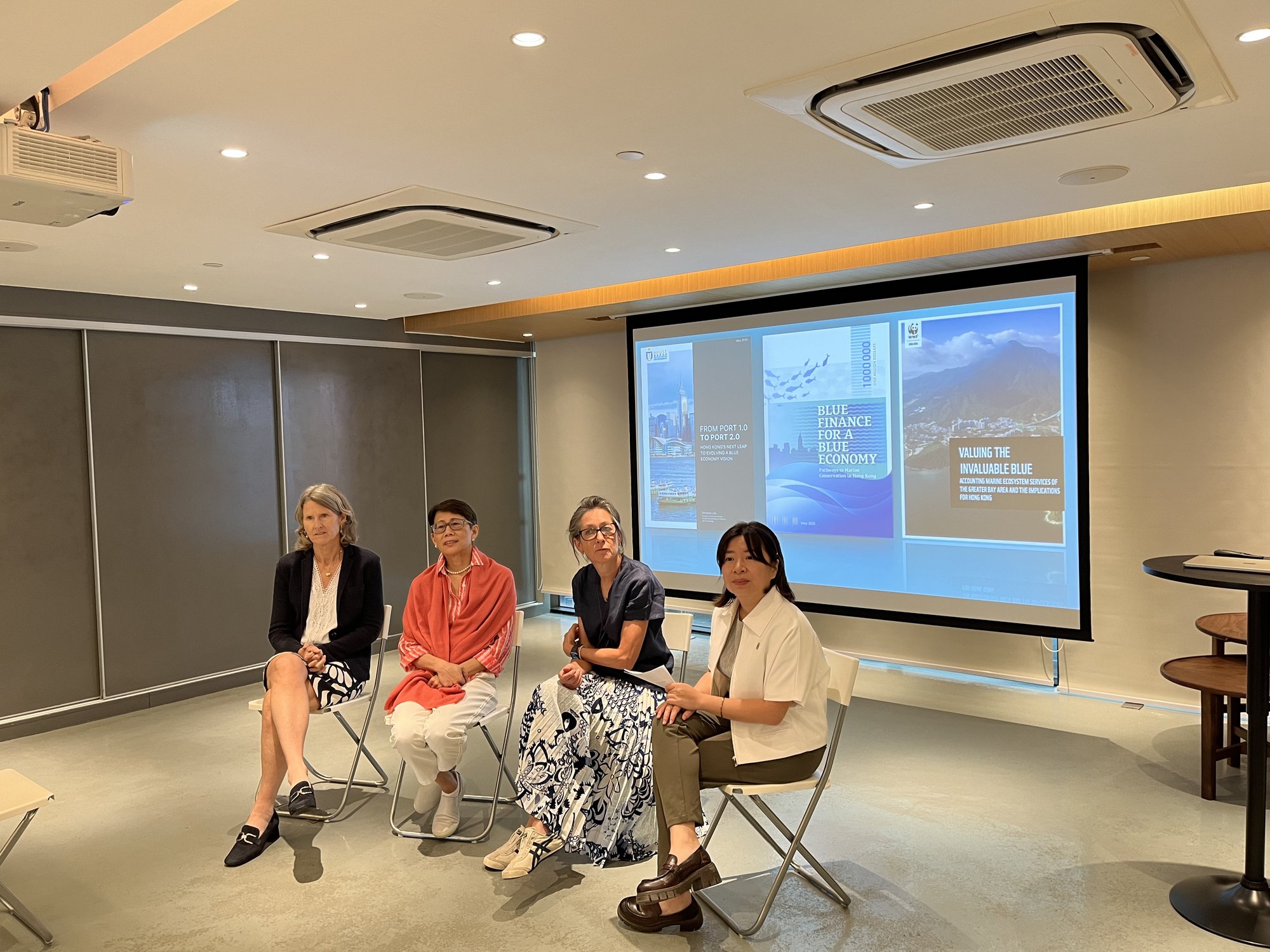The sustainable blue economy − a sustainable development approach that ensures ocean-based growth is ecologically sound and socially inclusive – offers Hong Kong a transformative path toward long-term prosperity and resilience. Recognising this, WWF-Hong Kong recently joined forces with two different institutions to chart the development of the city’s blue economy. Together, we released three landmark reports earlier this year: “Valuing the Invaluable Blue”, by WWF-Hong Kong; “Port 1.0 to Port 2.0”, by HKUST; and “Blue Finance for a Blue Economy”, by ADM Capital Foundation. Each report reveals ways that Hong Kong can reinvent itself as Asia’s blue economy hub.
The three reports outline how Hong Kong can leverage its unique advantages: world-class financial infrastructure for mobilising capital, a strategic location with thriving and resilient ocean ecosystems that offer tremendous ecological and economic value to society, and a strong foundation of green maritime industries that supports innovation and sustainable development.
The WWF-Hong Kong study, conducted by the Chinese Academy of Sciences, quantifies for the first time the monetary value of the Greater Bay Area’s coastal ecosystems – a Gross Ecosystem Product (GEP) worth a staggering RMB4.9 trillion, equivalent to over 35% of the area’s GDP. Anchored in China’s national standard for ecosystem valuation, this GEP assessment provides a common language to translate the benefits of nature into economic terms. It offers a new lens for understanding the true value of marine ecosystems and lays the groundwork for more informed, balanced policy and investment decisions.
“This valuation illustrates the critical, yet often overlooked, economic contributions of our marine ecosystems”, said Lydia Pang, WWF-Hong Kong’s Head of Oceans Conservation. “Comprehensive valuation tools helps guide smart investments, inform conservation budgets, and assess trade-offs in development — ensuring nature’s value is factored into planning and development decisions.”
The joint effort behind these reports brings together expertise from conservation, academia, and finance to kick-start Hong Kong’s journey toward a sustainable blue economy. By integrating marine conservation, climate resilience, and sustainable maritime development, this collaborative approach enables smarter planning, targeted investment, and more balanced decision-making that recognises the true value of healthy ocean ecosystems.
If Hong Kong acts now, the city can secure its position as Asia’s blue economy pioneer and redefine its maritime identity for future generations.

From left to right: Christine Loh, Chief Development Strategist, Institute for the Environment at HKUST; Kate Martin, Sustainable Finance Consultant at ADM Capital Foundation; Sophie le Clue, CEO at ADM Capital Foundation; and Lydia Pang, Head of Oceans Conservation at WWF-Hong Kong

Lydia discusses Valuing The Invaluable Blue, a new report by WWF-Hong Kong

At the launching event, the experts discussed how Hong Kong can leverage global shipping reforms, blue finance and marine ecosystem valuation to lead Asia’s sustainable maritime transition